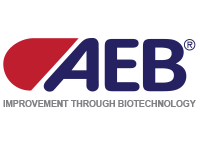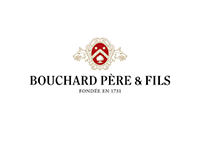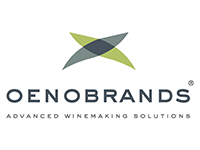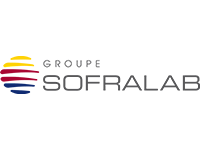We support producers (estates, wine merchants), industrialists in viticulture and oenology, technical institutes, service providers and consultants, inter-professional organizations, unions and wine management organizations (ODG) in order to:
- control and optimize production tools, solve technical problems in the cellar, and enhance wine-making by-products
- evaluate new production techniques (viticultural or oenological) under each company’s specific operating conditions, and enhance experimentation
- respond to the major challenges of the industry (agroecology in viticulture, reducing phytosanitary inputs, alternatives to sulfites, controlling wine aging, developing wine-making by-products, etc.)
- develop and validate or demonstrate the benefits of new solutions, from the laboratory to real production or use conditions.
We rely directly on the technical and scientific skills of the research staff of the laboratories of the University of Burgundy and Institut Agro Dijon, UMR(*) Procédés Alimentaires et Microbiologiques (PAM), Centre des Sciences du Goût et de l’Alimentation (CSGA), AGROECOLOGIE and BIOGEOSCIENCES.
With the Burgundy-Franche-Comté Region’s financial support, we have state-of-the-art equipment that allows us to offer innovative analysis solutions and ambitious partnership research programs.
(*) Unité Mixte de Recherche
Our team supports you in your R&D projects or carries out, according to your needs, analyses with the scientific support of researchers in Burgundy.
Main partner laboratory: UMR Procédés Alimentaires et Microbiologiques (PAM), University of Burgundy
Oenological experimentation | Support for cellar experimentation | Spirit development trials
Technological advantages: University of Burgundy
Possible uses: Support for experimentation of oenological products or itineraries. Development of new products.
Main partner laboratory: UMR Procédés Alimentaires et Microbiologiques (PAM), DIVVA platform
Specific research topics: Microbial ecology and interactions, Brettanomyces, O.Oeni, Biofilms (including Voiles), Fermentation, non-Saccharomyces yeasts
Polyphenol characterization | Oxidative stability evaluations for white wines | Macromolecule characterization | Aroma and contaminant analyses | Non-targeted molecular analyses: metabolomics | Identification of disorders, deposits and contaminants | Analysis of wine phenolic compounds
Technological advantage: state-of-the-art analytical equipment, specific approaches for wines and spirits
Possible application: detection, compound quantification or characterization of molecular interactions in wines
Publications
Main partner laboratory: UMR Procédés Alimentaires et Microbiologiques (PAM)
Specific research topics: Microbial ecology and interactions, Brettanomyces, O.Oeni, Biofilms (including Voiles), Fermentation, non-Saccharomyces yeasts
Microbial ecology | Indigenous strain selection | Micro-organism implantation testing
Technological advantage: expertise in wine micro-organisms
Possible uses: studying microbial ecology during vinification, quality control
Main partner laboratory: UMR Centre des Sciences du Goût et de l’Alimentation (CSGA)
Specific research topic: Sensoriality of white wine oxidation
Sensory evaluation of wines
Technological advantage: sensory analysis rooms, trained panels, statistical expertise
Possible uses: evaluating the impact of oenological practices on wine tasting
Main partner laboratory: UMR Agroécologie
Evaluation of the quality and biodiversity of vineyard soils | Mycorrhization analysis | Microbial activity and carbon turnover in soils | Enzymatic activities |
Physico-chemical soil analysis: total soil, WEOC, non-targeted approaches
Link to the Agri-Environment domain / Soil microbiology section
Main supporting laboratories: UMR Agroécologie, Procédés Alimentaires et Microbiologiques (PAM)
Screening biostimulant activity on grapevines | Efficacy test against downy mildew in grapevines | Efficacy test against grape powdery mildew | Screening and efficacy test of stimulators of natural defenses in grapevines | In vivo experimentation in natura
Technological advantage: Pathosystem control, microscopic, chemical, genetic approaches…
Possible use: Developing alternative phytosanitary treatments
Main partner laboratory: UMR Biogéosciences
Specific research topics: Precision agriculture, climatic effect on viticulture, frost risk management
Hydric constraint management in vines | Topoclimatic studies of vineyards | Oenological potential of vineyards | Study of the terroir
Technological advantage: Topoclimatic modelling and mapping
Possible uses: Identifying frost risks and evaluating control methods
Main laboratory: UMR Procédés Alimentaires et Microbiologiques (PAM), DIVVA platform
Specific research topics: Internal structure of natural cork stoppers, physico-chemical properties and gas transfer through the stoppers or at the glass-cork interface.
Physico-chemical properties of materials | Gas permeability of stoppers and containers | Aging process monitoring
Technological advantage: Advanced analytical equipment
Possible application: characterizing the oxygen permeability of stoppers
Main partner laboratory: UMR Procédés Alimentaires et Microbiologiques (PAM), Méthanov platform
Composting or methanizing vineyard by-products
Take advantage of the resources at the Institut Universitaire de la Vigne et du Vin, a viticulture and oenology training center in Dijon, and of the DiVVA platform’s expertise and analysis solutions.
We offer training courses including:
- A scientific approach
- Practical workshops on site
- Concrete expert testimonies
- Tailor-made content to meet your needs directly
We offer tailor-made R&D programs that guarantee you access to expertise and technical, scientific and technological resources.
Scientific and technical platforms
DIVVA, DIMACELL, PACSMUB, GISMO
State-of-the-art equipment and laboratories
- Access to specific laboratory resources
- The University of Burgundy’s experimental vineyard: a 3-hectare vineyard located in Marsannay-la-Côte to conduct studies on grape varieties and traditional winemaking methods in Burgundy
- The resources of the SAYENS platforms: Biotechinnov, Agribusiness, Methanov, Agri-Environment
- A 400 m² equipment hall
A team of experts and scientists at your disposal
- Research staff from the laboratories and large campus analytical platforms
- The University of Burgundy vineyard’s operating team
- Sayens engineers and technicians
- Numerous partnerships to establish relationships and set up projects (GIP BVV, agrOnov)
- DPPH index analysis to monitor the evolution of oxidative stability according to different viticultural or winemaking itineraries.
- Aromatic assays of volatile wood compounds and sensory evaluation to assess the impact of different wood treatments on wines
- Identification of deposits in wines
- Metabolomic approaches to identify the determining factors of white wine evolution.
- Analysis of the evolution of yeast biodiversity in grape musts during vatting
- Implantation testing for selected yeast strains
- Monitoring the microbial ecology in musts under bioprotection in comparison with sulfiting
- Indigenous yeast viability tests
- Evaluation of the impact of different soil management methods on the microbiological quality of soils and vine mycorrhization
- Work on wine conservation and aging: impact of corks, containers, conservation at sea, etc
They trustes us
For more information
about Vine and Wine R&D domain
Other R&D expertises
Agri-environment Agri-foodBiotechnologiesMaterials | Analytics
Materials | Manufacturing HealthHumans and Societies
Financing schemes: you can benefit from Sayens’ approved schemes
Do you want to train yourself or your teams
to develop new products ?



